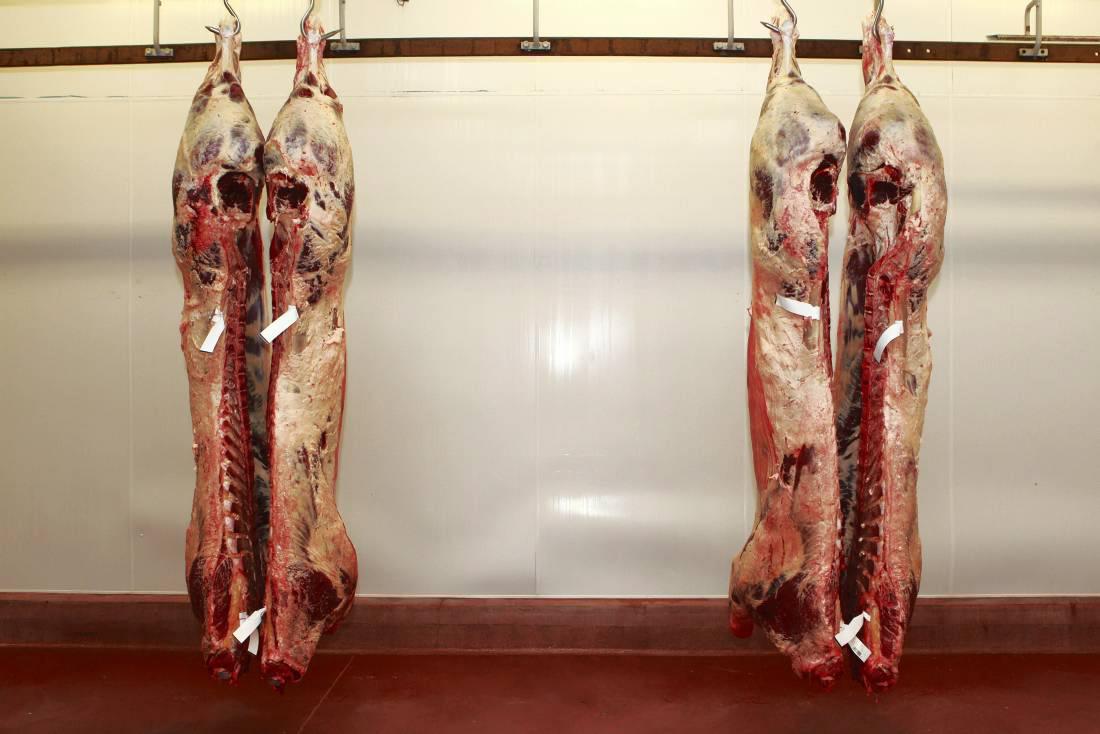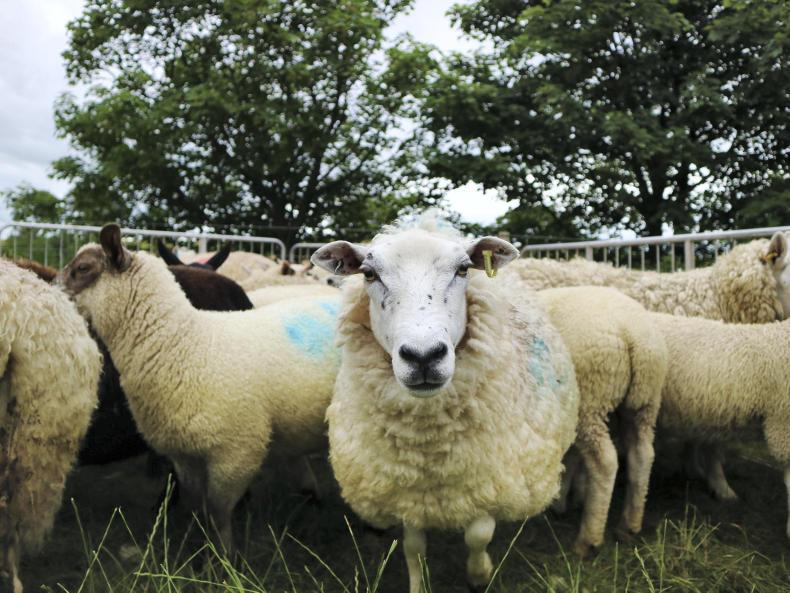In response to an article in last week’s Irish Farmers Journal which questioned meat inspection charges levied on farmers at slaughter, DARD has rejected any suggestion that higher meat inspection charges in NI are due to them.
Analysis by the Irish Farmers Journal has indicated that meat inspection costs levied on farmers in Britain tend to be in the range of £1.50 to £3 per head while, in NI, the charge is generally around £5 per head. Meat inspection in Britain is conducted by the Food Standards Agency (FSA). In NI, the inspection is done on behalf of the FSA by the DARD Veterinary and Public Health Unit.
The crux of the issue seems to be that factories in Britain tend to absorb some of the meat inspection cost, and only pass on a proportion to their farmers. In NI, most factories pass on the whole cost.
On enquiry, a DARD spokesperson confirmed that the current charge made to the seven main meat factories in NI for meat inspection averages £4.91 per adult animal, and ranges from £3.96 to £6.04. The spokesperson also confirmed that approximately 23% of these costs related to overhead/back office costs, but maintained that these costs were directly applicable to meat inspection work.
The most recent published statistics suggest that charges levied on the industry in Britain for meat inspection are significantly higher than in NI. In 2011/12, the average in Britain was £7.55 per adult bovine compared with £5.80 in NI, although much of the difference can be explained by the prevalence of smaller, less time-efficient factories in Britain than here.
Genetic modification (GM) of crops will play a key role in ensuring British farmers are competitive in the global markets, according to Defra Sectary for State, Elizabeth Truss.
The British Food Minster told delegates at the Oxford Farming Conference on Wednesday that she believed GM technology had the potential to lower water and pesticide usage in the production of crops.
She said: “I would like British farmers to have access to technology that allows them to be competitive on a global stage.”
In a speech clearly tailored to her largely farming audience, she said that Brussels needs to recognise that European farmers are now competing across the globe and that policy must allow them to be competitive, not add to the cost burden.
Specific reference was made to the effect of the three-crop rule. “As soon as the European Commission started work, I went to see Commissioner Hogan to work to secure an urgent review in the three-crop rule and simpler greening requirements.
“I want farmers growing what people want to buy, not what Europe tells them,” she added.
In further discussion with the Irish Farmers Journal, she added that she was very keen to see simplification on greening, commenting that there was no indication that the measures would deliver environmental benefits.
With political pressure mounting from anti-EU parties, her address was clearly sculpted to not only help anchor the Conservatives’ commitment to British food production but appeal to the patriotic voter. She clearly threw her weight behind the buy British campaign and the importance of food and farming as a core part of the Government’s long-term economic plan.
On the specific issue of Britain leaving the EU, she said: “The Conservative Party is pro-Europe but on better terms,” warning that “if we don’t get what we want, then all options will be considered”.
In the context of agriculture, she said: “Ultimately, we want to see far more decisions to be taken in Britain for the benefit of British producers.”
With British milk prices having fallen from a high of 33.8p/l to a price now being quoted in the low 20s, the Minister also addressed the issue of volatility. She said: “I am glad that the National Farmers’ Union with our support, is studying the feasibility of a futures market for dairy. Futures could have a strong potential to bring added security for farmers.”
Buchanan to stand for wool board
Dungiven farmer Ian Buchanan has put his name forward for re-election to serve as a board member of the British Wool Marketing Board (BWMB), representing Northern Ireland.
Buchanan, along with two English board members Malcolm Corbett (English northern) and Nigel Williams (English central), reach the end of their present term in office in March 2015. Both English representatives have decided to retire from the board.
Nominations are now being sought from candidates who live in the three regions. To be eligible, candidates must be nominated in writing by at least 10 registered wool producers. Nominations should arrive no later than 6pm on Thursday 29 January, by Fax on 01274 652233, by email to jeanmurphy@britishwool.org.uk or by post to Mrs J Murphy, British Wool Marketing Board, Wool House, Sidings Close, Canal Road, Bradford, BD2 1AZ. Depending on the interest in each seat, elections will be held in February 2015.
The role of board member normally requires approximately 30 days of work each year attending meetings, as well as other local and national BWMB business. Remuneration of around £8,900 is paid annually, plus expenses.
Farmers should make a will
Farmers who do not have a will in place run the risk of it being left to government to decide what happens to their farm business when they die, and leaving everything in a state of turmoil for grieving relatives.
Delivering the warning at a UFU meeting in Dungannon, local solicitor Oliver Ross, from Simmons Meglaughlin and Orr, said that a large percentage of farmers still do not make a will. It means that the person they want to take on the farm business could be left with a series of relatives laying claim to a share.
Ross outlined a couple of scenarios that might unfold where no will exists (intestacy rules apply). The first was a farmer with 80 acres (£1m of assets) who dies leaving a wife, no children and no will. The wife is not entitled to everything. She gets personal possessions, plus £450,000. The rest of the estate is then shared between any surviving parents of the farmer or any brothers or sisters.
In a similar scenario, except where the farmer has three children, the wife gets personal possessions, plus £250,000, while the children each get one third share of the rest of the estate. If the children are young, this must be held on trust until they reach 18. “It potentially makes it a long, drawn-out affair and that is probably not what you want,” said Ross.
He maintained that everyone who owns property should have a will in place. “It will require you to come into an office for a first meeting lasting about 30 minutes, and a second meeting of 15 minutes. It will only cost about £100. But I always insist on seeing a client on their own. The will must reflect their wishes, not those of someone else,” he said.
His advice to farmers is not to think too much about future scenarios, but to write a will based on current circumstances. “It is not cast in stone.
‘‘I always urge clients to think about it every three to five years. If circumstances change, make a will to suit,” said Ross.
He also warned against ‘‘homemade’’ wills which rarely stand up to scrutiny, and, where two parents have a young family, he urged them to make sure they appoint a guardian for their children in a will.
“If something terrible happens, you don’t want social workers deciding who rears your children,” he said.
Greenmount charity night
The Greenmount Association is hosting a ‘‘Grill and Fiddle’’ charity night in support of Cancer Focus NI on Saturday 17 January at Leighinmohr House Hotel, Ballymena.
A charity auction of items, including Holstein and Ayrshire heifer calves, will be held during the event which starts at 7pm. The dinner will be a three-meat barbecue, supplied by Jane’s Kitchen. Music is by Fiddler Adam and DJ Bob. Tickets cost £25 each and can be bought from Kevin O’Donnell on 07771 727902.








SHARING OPTIONS